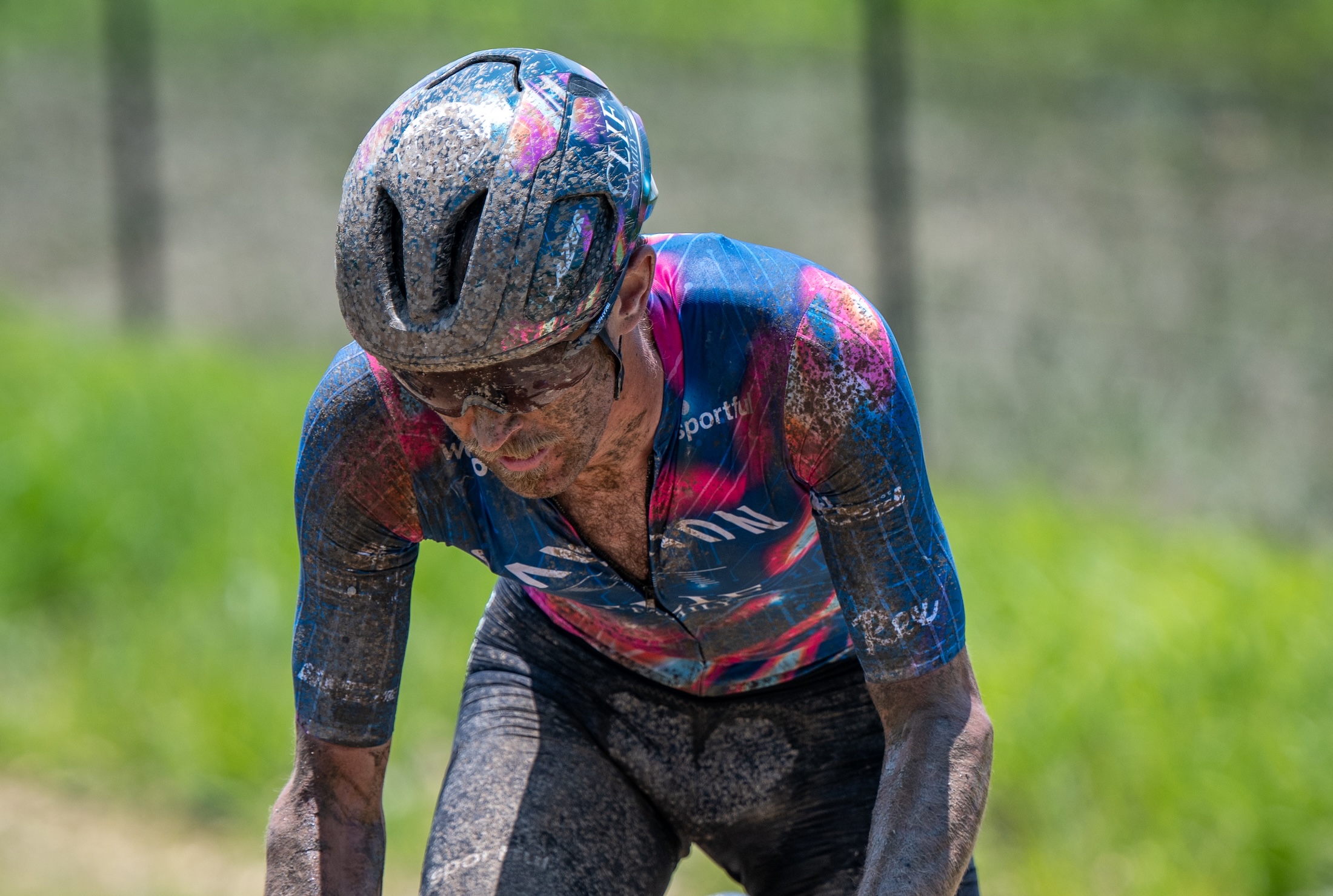WorldTour relegation watch - Israel-Premier Tech's survival strategy
Illness and injury put team in an unexpected position as 19th-best team fighting for 18 places in 2023 WorldTour
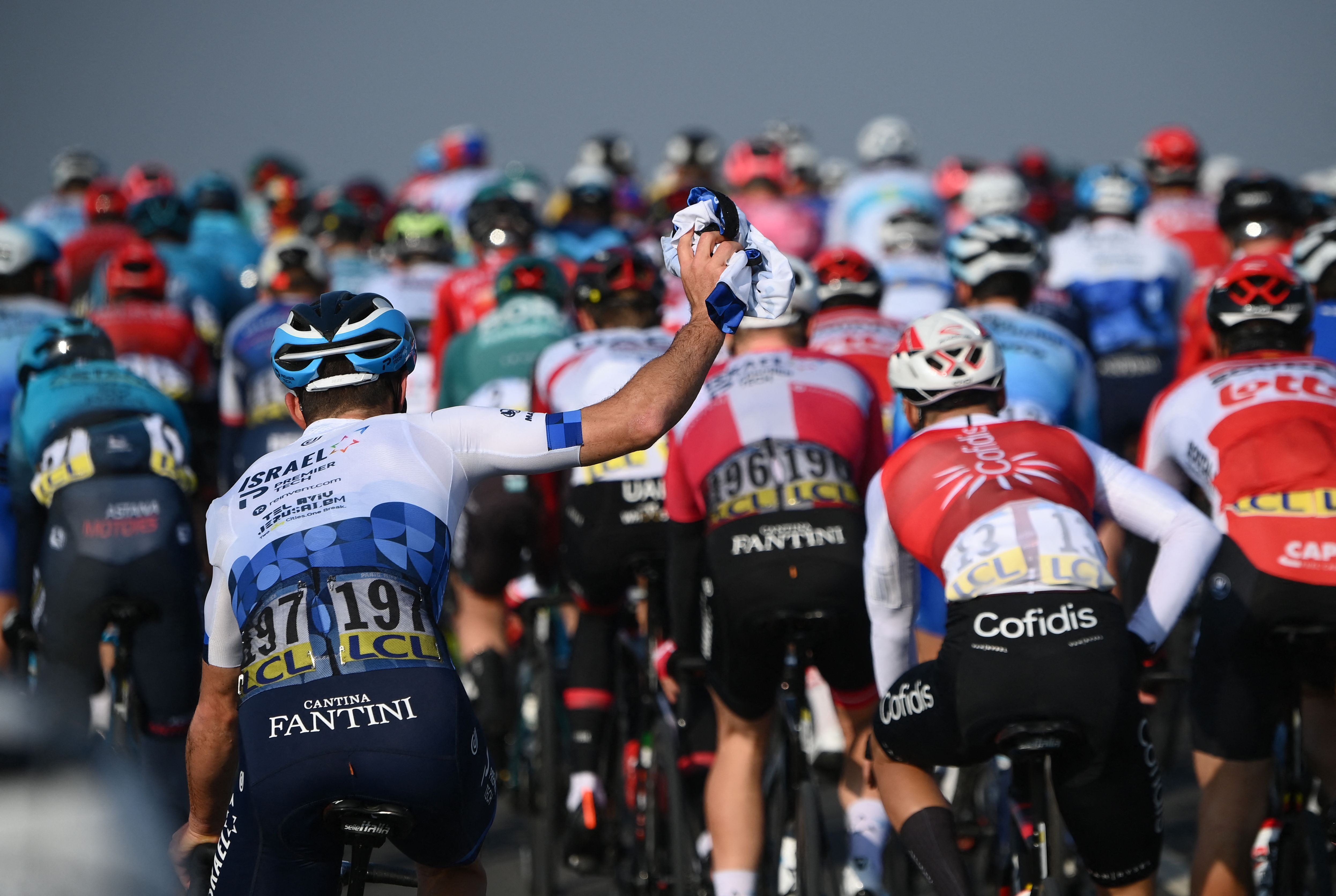
The latest race content, interviews, features, reviews and expert buying guides, direct to your inbox!
You are now subscribed
Your newsletter sign-up was successful
In 2023, the UCI's promotion/relegation system will go into effect for the first time, limiting the number of WorldTour teams to the 18 highest-ranking teams in the combined 2020-2022 World Rankings for teams. At least 22 teams are aiming for those 18 positions and, other than the top five teams, no team is safe. In this series, Cyclingnews examines the teams in the bottom half of the rankings and their prospects for 2023.
Cyclingnews spoke with Israel-Premier Tech manager Kjell Carlström about how illness and injury have put the team in a most unexpected place with Lotto Soudal in the 'relegation zone' - in 19th. (For a little context on what that relegation zone means, read our explainer on how the WorldTour points system works) The team are heading to Giro d'Italia to win stages and hope to turn their bad luck around.
Israel-Premier Tech only just joined the WorldTour in 2020, having seized the opportunity to get the licence of Katusha and move into the sport's top tier earlier than planned and ended that season 22nd in the team rankings. After a strong 2021 season, however, the team moved up to 16th in the combined 2020-2021 team rankings and 10th for 2021 alone.
"Last year, we did quite well, we were 10th in the end of the season, and we believe that we actually have a little bit stronger team in 2022," says Carlström, the Finnish former pro who raced his last seasons with Team Sky.
But in the first few months of 2022, the team has been seriously impacted by illness and injury and have plummeted to 19th in the projected 2020-2022 rankings with Lotto Soudal the only WorldTeam lower-ranked.
Israel-Premier Tech have also accumulated points at a slower rate this year compared with Lotto Soudal but are aiming to turn that around now that the riders are healthy.
Goal 1: Getting healthy riders to races
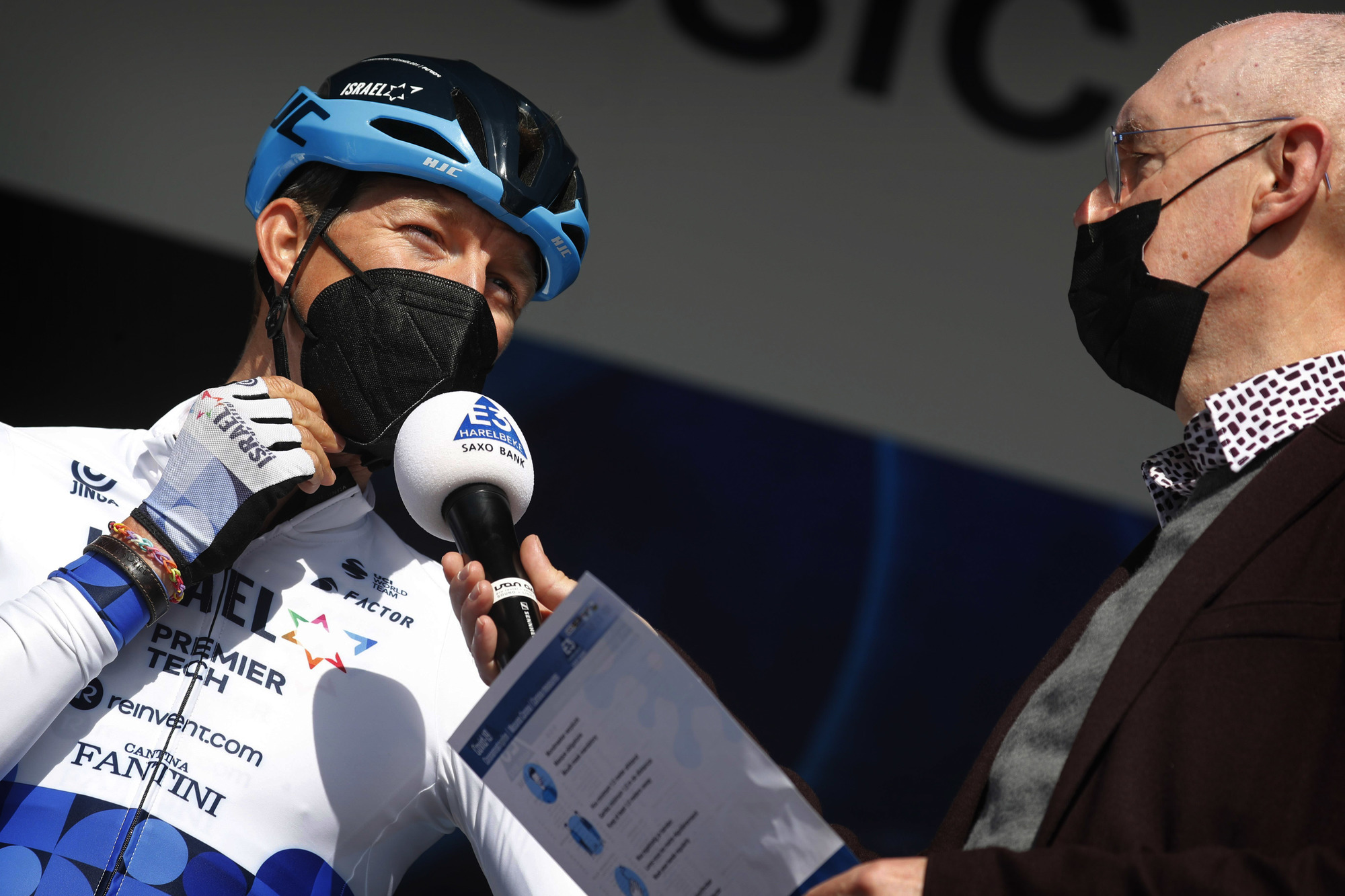
The resurgence in COVID-19 earlier this year and viruses circulating at races like Paris-Nice and Tirreno-Adriatico had a profound effect on Israel-Premier Tech.
The latest race content, interviews, features, reviews and expert buying guides, direct to your inbox!
"From December, we have had 650 man-days of sickness, which is huge. If you calculate how many guys we have on the team, it's more than 20 [sick] days for each rider," Carlström explained.
The team also had Patrick Bevin out with a broken collarbone in February, Giacomo Nizzolo out with a fractured wrist in March, and Tom Van Asbroeck out all of the Classics because of a blood clot in his arm. Then, the entire team had to miss the Tour of Flanders because of too many COVID-19 cases in the team.
"We had some COVID partly, and a few guys they have had long COVID which means that it has taken really long for them to come back. And then all kinds of other viruses and illnesses. It started already in early February. It's only in the last week or so that we can say that most of the guys are starting to be healthy again and can properly train and properly race."
We are fully focused on not getting relegated because we don't want to experience that option. We are fully invested in making sure that we get enough points, and there will never be that discussion.
Kjell Carlström
Before naming any races where the team will try to gain points, Carlström says the main focus is on getting all of their riders back to racing.
"Our main focus is to get back to a healthy roster, that we have all 31 riders healthy and fully going. We believe that we are on a high level and think that the points will follow. It should even out things in a few months.
"It has been quite a tough few months - we had 21 riders sick at the same time. Plus a couple of guys then also injured and a few guys needed to rest because they had been racing so we were really down to only one programme that we could support."
"We had a really tough two months where we couldn't go to all the races that we wanted to go. And we had to scramble, even if we have 31 riders. So that's definitely something that has impacted the first part of the season."
Goal 2: Gaining points, getting more riders scoring
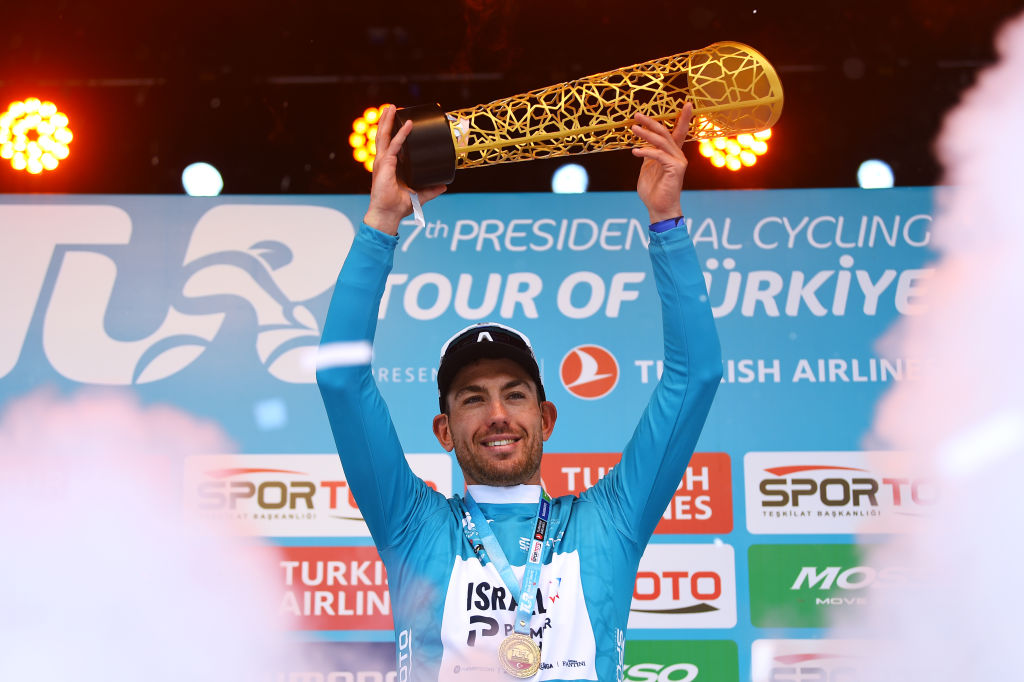
After a stage win and top 10 in the Giro d'Italia with Dan Martin in 2021, a strong season from Michael Woods, who finished 13th in the UCI rankings, Israel-Premier Tech made some smart acquisitions for 2022, bringing in Jakob Fuglsang for stage races and Giacomo Nizzolo for one-day races and stage wins.
However, because of their disastrous spring, the team have been surpassed by Arkéa-Samsic, Intermarché-Wanty Gobert and Cofidis, and Lotto Soudal came as close as four points to them until Bevin's Tour of Turkey victory and Woods' sixth-place finish at La Flèche Wallonne.
"Although we did not envision ourselves before the season started to be in a place that we are struggling for points - we are fully ready with a strategy to turn the tide and confident that we will be in a much better situation in the coming months," Carlström says of their strategy going forward.
"We are fully focused on not getting relegated because we don't want to experience that option. So at the moment, we are fully invested in making sure that we get enough points, and there will never be that discussion."
There are 10 guys that need to score. When you get 10 guys that have like 200 points this will change quite a lot.
Kjell Carlström
"It is not really possible to look at an intermediate situation and predict what will happen in the end of the season," Carlström says. "That's because you have ten riders that need to score points. And if you don't have ten riders that have, say, at least 200 points, it doesn't make a lot of sense to look at it, because you know you will probably achieve that in the end of the season."
Carlström says that it takes luck to score points when going up against the top teams - currently Ineos, Quickstep, Jumbo-Visma, UAE and Bahrain Victorious, so targeting stages or lower-level races makes sense.
The way the UCI team rankings work, there are more points available for winning a ProSeries stage race than a 10th place finish in the Tour de France, which is why Bevin's win in Turkey made such a difference.
"We are looking at different races where we could potentially score more points - just because of the situation. If we find those races, we might reinforce our roster for them, compared to what we initially thought in the beginning of the year, when we planned it.
"That's the thing with this point system, that you actually have to [target small races] when you're hunting for points. There are only so many guys that can score points on the WorldTour. Sometimes with a little luck, you can get into that top 10, top five even if you're on a good day, and you have good riders. But in the big picture, it's mostly the big teams that are scoring the most points."
The depth of the team also matters, he says.
"There are 10 guys that need to score. When you get 10 guys that have like 200 points this will change quite a lot. And of course, if you look at who has that at the moment, you see the teams that are quite high in the ranking, for example, Wanty and Cofidis - they all have 10 riders that have scored a lot of points and Arkèa also. That's why they are high up in the rankings, including the fact that they also have one or two riders that have scored a lot of points. This is the interesting place to look at how this will evolve in the next two to three months. And then you can have a better overview of what will happen."
Goal 3: Take the pressure off
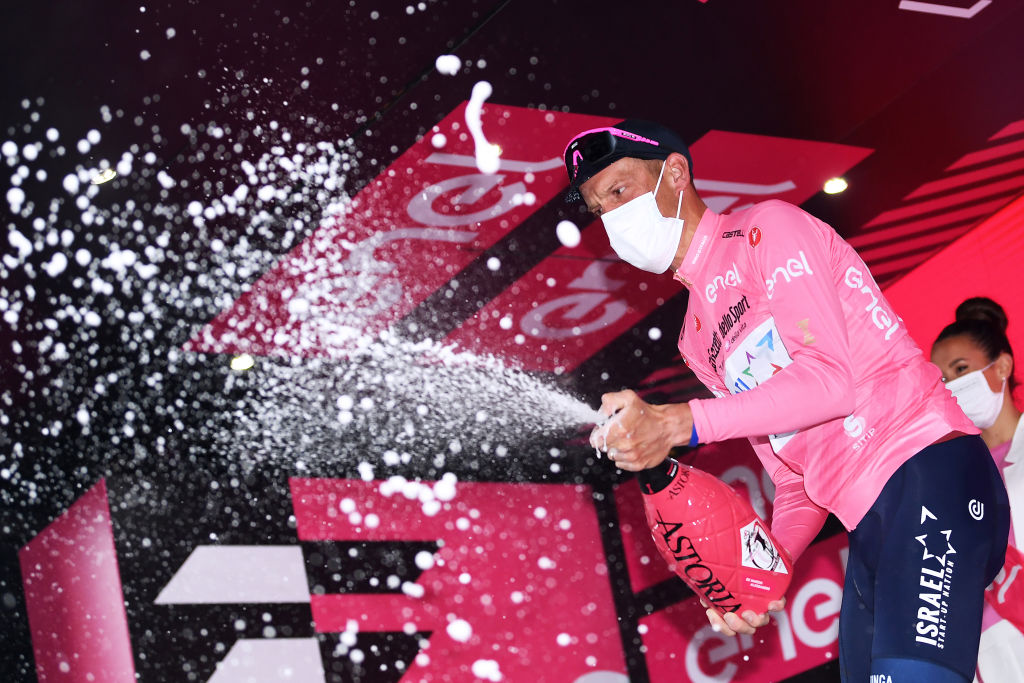
Much like Quickstep-AlphaVinyl manager Patrick Lefevere, who said he took the pressure off his riders ahead of Liège-Bastogne-Liège and then scored a big win with Remco Evenepoel, Carlström is also taking a measured approach to the race for points by not overtly targeting the GC at the Grand Tours.
"It's important to continue focusing on good training and everything and making sure that you get healthy before anything else," he says. "We know the qualities of each of the riders. So we know that when they are healthy they can perform. It's just a matter of time.
"We [have to] make sure everybody tries to forget that stress moment because, you know, it's not only the team that could put stress on the athletes it's also the athlete himself because they want results. And sometimes that stress might be even bigger than what somebody from the outside can put on them."
For the Giro d'Italia, the team had considered other strategies but chose instead to put their weight behind Nizzolo for stages and the points jersey.
The main goal [for the Giro d'Italia] is to win stages and to go for the maglia ciclamino. I think we have a good possibility of that with Nizzolo.
Kjell Carlström
"The main goal is to win stages and to go for the maglia ciclamino. I think we have a good possibility of that with Nizzolo. And he merits having the backup from the team for that. And at the same time, we have had so many illnesses in the last couple of months, so that the guys that we had thought could do GC we don't believe that they are ready for that yet. So when you combine those two things, then you come out with the objective of putting full focus on Giacomo.
"And then, of course, we have [Alessandro] De Marchi who had the pink jersey last year. He has also had some illness and hopefully, he can into it and come out on the better end in the last two weeks or last week when there are a lot of mountains.
"I think we will have a similar tactic in the Tour de France where we are going more for stages than aiming really for GC, which is quite stressful for the whole team. We saw that with last year's Tour where we did have a small idea of going for Mike [Woods] the for the GC, but those plans already derailed on the first stage with the crashes. If we are there, no problem, we'll go for it. But not with the initial idea of GC."
Points system will 'keep the tension until the last race'
WorldTeams have to meet the UCI's other requirements - financial, ethical and administrative standards as well as the sporting criteria, so there is still a chance that other teams might not meet those.
There have been complaints of Astana not paying riders this season, and in 2020 during the pandemic, several teams cut salaries to stay afloat including the now-defunct CCC Team.
"I think that they are looking at all different aspects of it. We never cut anybody's salaries during COVID. I think it's part of it," he says before adding he doesn't see the UCI changing any rules because of the pandemic.
"It's very difficult to say that you would not apply the rules that are now about relegation or coming up to the WorldTour because there will always be somebody that is not happy. Of course, it would be ideal if it could be solved in a different way. But I don't think that there is a possibility of changing that now.
"The ProTeams are investing in getting up to the WorldTour. And of course, the WorldTour teams are investing in staying there and getting better, even if the circumstances might be really raw for one or the other."
Because the rankings are based on the top 10 riders on each team, riders' points come and go throughout the season and the final rankings will only be known in October at the end of the season.
"That's the complexity of this system - it will keep the tension until the last race actually," Carlström says.

Laura Weislo has been with Cyclingnews since 2006 after making a switch from a career in science. As Managing Editor, she coordinates coverage for North American events and global news. As former elite-level road racer who dabbled in cyclo-cross and track, Laura has a passion for all three disciplines. When not working she likes to go camping and explore lesser traveled roads, paths and gravel tracks. Laura specialises in covering doping, anti-doping, UCI governance and performing data analysis.
